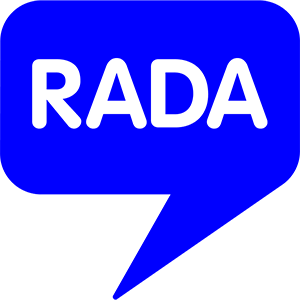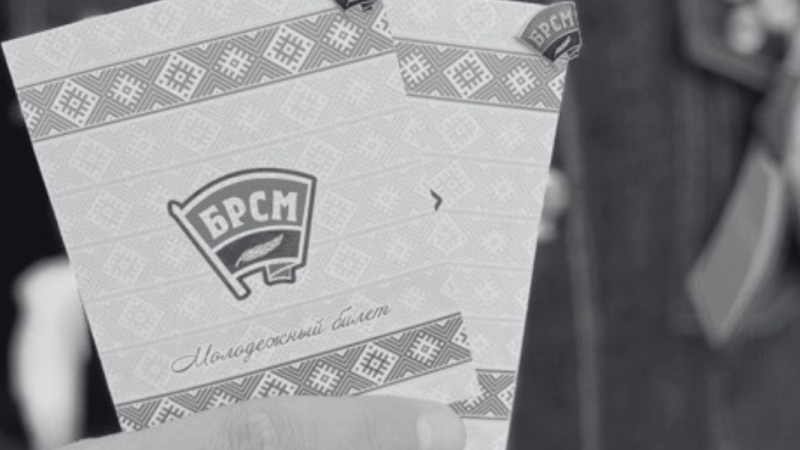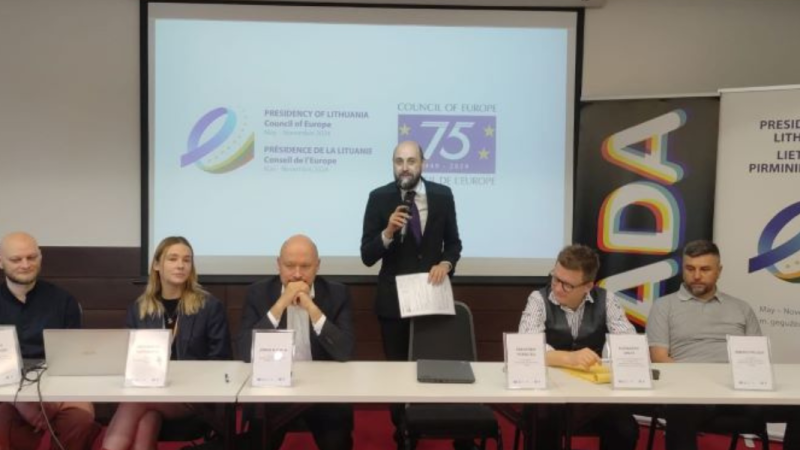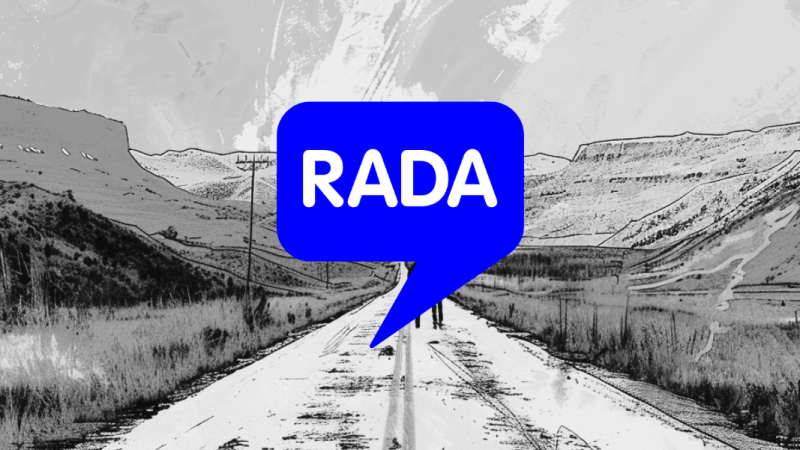Belarus.Youth.Long Live
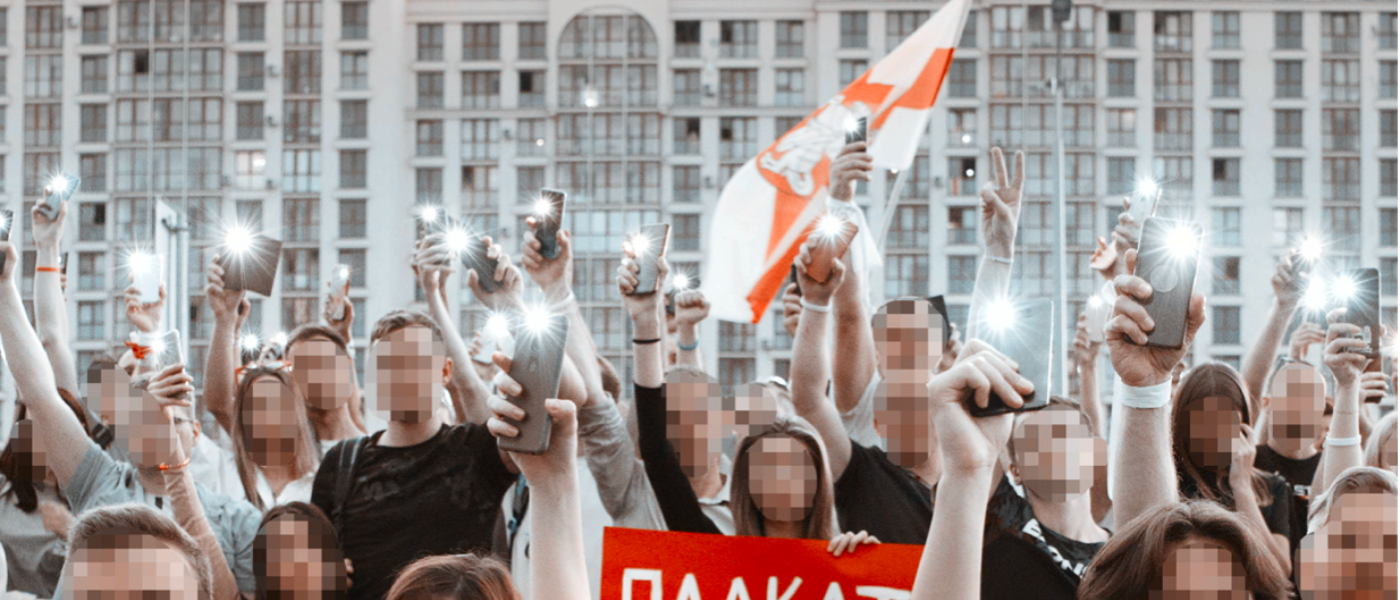
This collection is our attempt to analyze the Belarusian independent youth sector after all the crises it has experienced since 2020. We have gathered insights from the key segments, in which we have activists and organizations we can trust. This compilation is an interim assessment of where we are and what state we are in as we continue our journey to a free Belarus.
Below you can read excerpts from each segment, and the full text is available at the link.
We are the Belarusian National Youth Council “RADA,” an independent democratic umbrella organization for youth associations. Our purpose is very simple – to defend youth rights by any means necessary.
RADA was founded in 1992, but authorities annulled its registration back in 2006. Since then, we have not stopped our activities for a single day.
Today things are not going well for us. There are almost no youth NGOs left registered in Belarus. We cannot be public and visible to each other to do our job and enjoy it. Self-censorship reaches such heights that sometimes there is no point in speaking out.
Many of us cannot live in Belarus because of our activism and public position. Those who have stayed are either already in prison, or may get arrested at any moment. By the way, one in three political prisoners in Belarus are young people, and sometimes even legal minors.
In addition to everyday harassment, we also have huge problems in our communication.
We are driven further and further apart geographically. We are constantly looking for differences between those who have left and those who have stayed, between those who have been working for a long time and those who are just getting started after 2020.
Each article in this collection will tell you about it.
But at the same time, each article in the collection also proves that we are still alive. We recount our stories in great detail, with fresh examples, with pride in what we are doing.
We are working here and now. Just because we’re not doing well doesn’t mean we have nothing else to do or that we’re broken. It just means that we call things by their proper names. It means we have the will to be honest with ourselves.
Why don’t we give up? Because we are united by one goal, which is very romantic, historically necessary and more achievable than ever. We dream of a free Belarus, where we just can be ourselves.
WOMEN ARE A SYMBOL OF BELARUSIAN PROTEST: FEMINIST MOVEMENT SINCE 2020

MARYYA KOLB,
a gender activist, informal education trainer, coordinator of the Porovnu youth trainer network, co-founder of Bolsh Tiela, a grassroot female* initiative, creator of education programs
Women in white. Belarusians admired the courage of dozens of ladies,* dressed in white, who took to the Kamarouski market square in Minsk on August 9-11, 2020 to protest police violence against peaceful protesters.
Shocked by brutality and inspired by the female-driven presidential campaign, Belarusians* formed human chains of solidarity and staged peaceful demonstrations across the country to demand justice.
This article is an overview of women’s* resistance in 2020 and the evolution of the Belarusian feminist movement.
Even before the public uprising of 2020, the regime had little sympathy for women* and their agenda.
The head of the Central Election Commission, Lidzia Yarmoshyna, said in September 2012: “They should sit at home and cook borscht instead of going to squares.” “If mankind dies, it will be because of women. They forget their mission as women and mothers,” she said in December 2010.
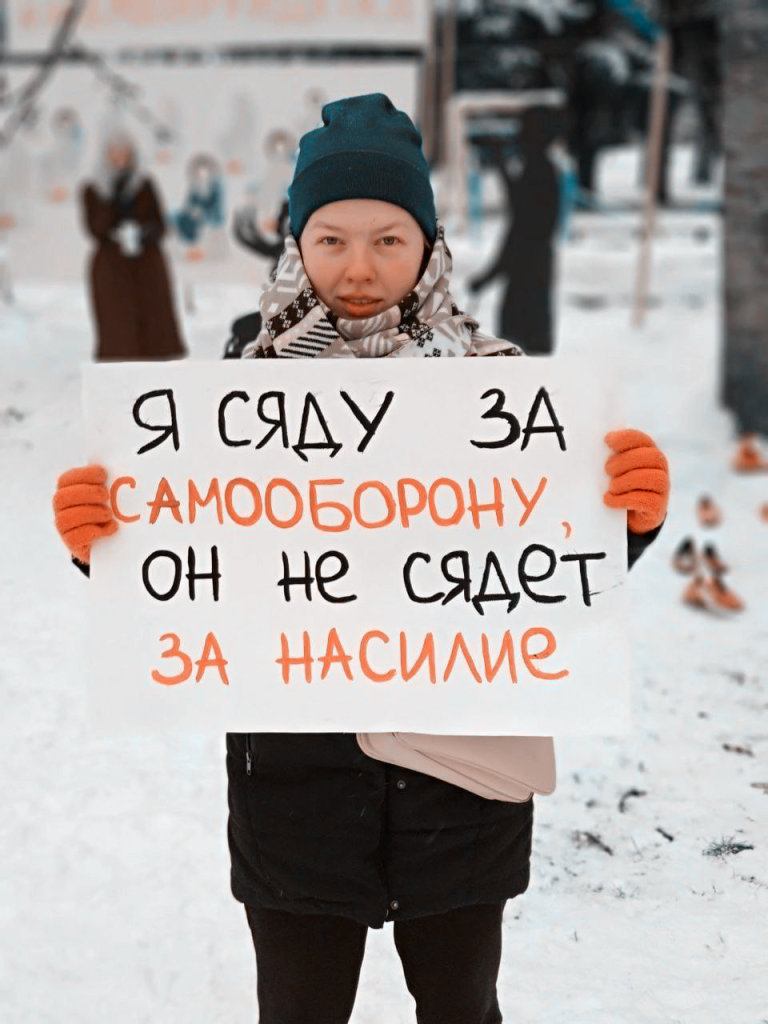
Gender inequality has become less pronounced over the last 20 years with women being active in NGOs and other initiatives that have encouraged and enabled more women* to defend their rights and interests and provided support and given shelter6 to women who suffered from violence. NGOs drafted and promoted a bill against domestic violence.
NGOs have been doing their job despite the government’s reluctance to cooperate with civil society.
The “*” (gender asterisk, a variation of the gendergap “_”) is used to represent in writing all possible gender identities, including non-binary and undefined gender identities, not just two genders – female or male.
CLOSURES OF ORGANIZATIONS WORKING TOWARD INCLUSION MAKE LIFE HARDER FOR VULNERABLE INDIVIDUALS

MARYNA SHTRAKHAVA,
co-founder of the organization “The Others”, a social project manager
Youth organizations and initiatives (hereafter, youth CSOs) fostering social inclusion are working to ensure that discriminated and stigmatized groups are included and/or enabled to participate fully in society.
It is important to understand that inclusion is not only about people with disabilities (a very diverse and heterogeneous group in its own right), but also about other groups – LGBTQ+, HIV-infected, people living with mental health issues, migrants, refugees and many others who are systematically excluded just because of who they are.
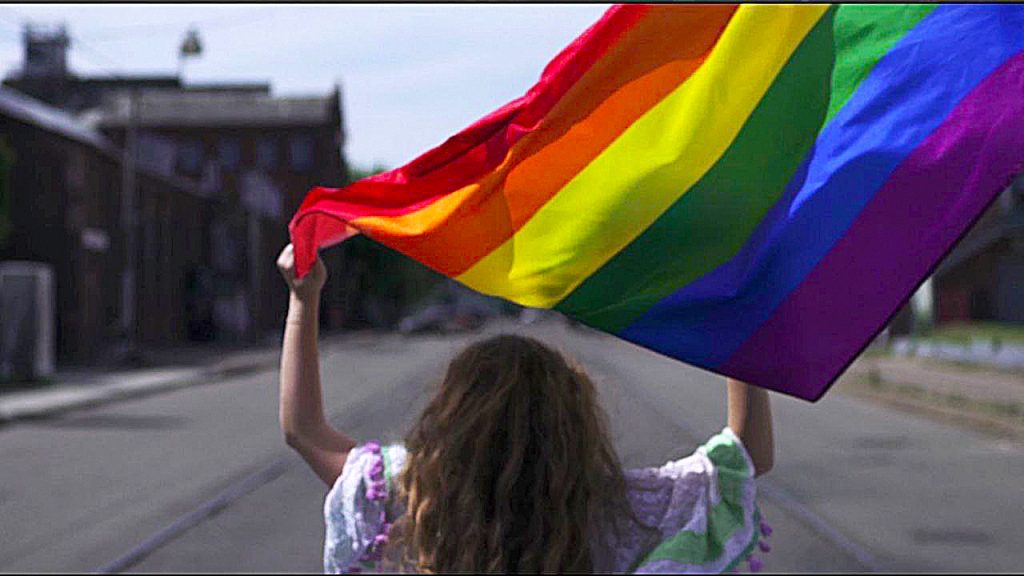
Prior to the August 2020 presidential election that triggered a political crisis, the youth CSO sector fostering inclusion was an active and diverse environment. The CSOs worked in a variety of formats, ranging from local private to large public events. Stigmatized and discriminated groups received a wide range of support (psychological, legal and financial) in cities and towns across Belarus.
Vulnerable groups could choose who, where and how to ask for help and information. But the 2020 political standoff radically changed both the landscape of inclusive youth CSOs and the situation of vulnerable groups.
Inclusive youth organizations have been closed down along with many other CSOs. The CSOs that opposed violence and supported democratic change have suffered the most.
Many CSOs have either shut down or are in the process of liquidation, have been forced to terminate or suspend operation.
The effects of August 2020 have significantly limited the inclusive organizations’ reach, while many vulnerable groups can only effectively receive assistance offline and in Belarus.
ATTACKS ON YOUTHS’ POLITICAL RIGHTS AND ORGANIZATIONS FROM SUMMER 2020 THROUGH 2022

DANILA LAURETSKI,
civil society activist, economist
Politics is a form of governance in which people act together and follow institutionalized procedures to resolve disagreements. In practical terms, political activity is the pursuit of changes in the political system and other aspects of public policy, as well as of ways to come to power.
Different government systems enable and encourage citizens to participate in politics in a variety of ways. Belarus, on paper, is a democracy based on a diversity of political institutions, ideologies, judgments and political activity allowed both at the individual level and through political parties and public associations. Therefore, both individuals and political organizations can and should engage in political activity.
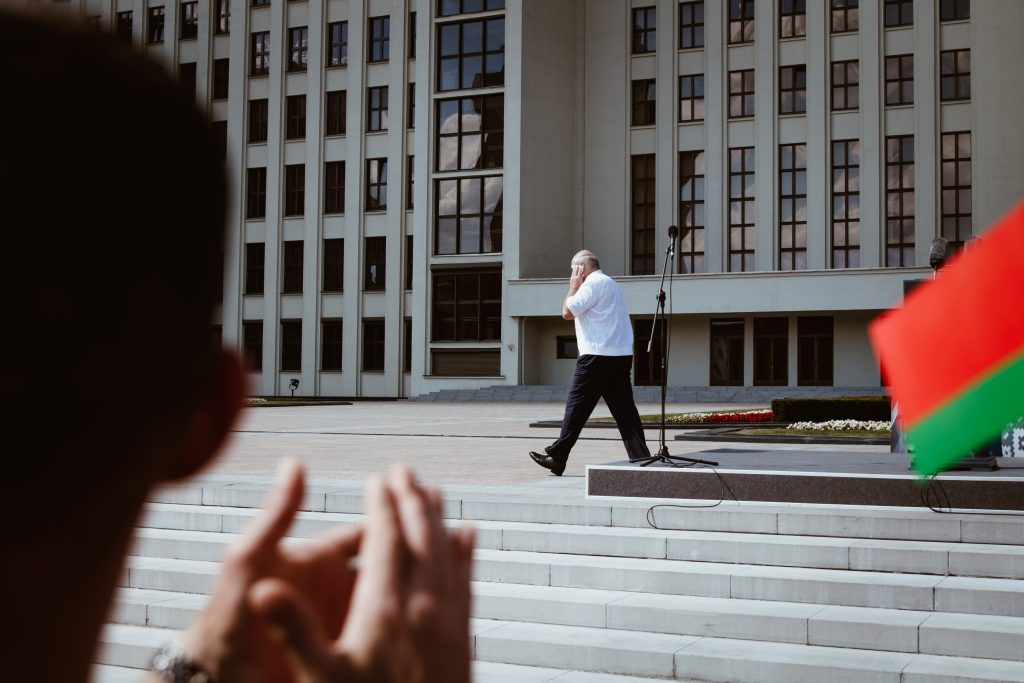
However, the reality is much different. Belarus is neither a democracy nor a law-ruled state. Since 1996, the transparency and integrity of its elections have been contested, and human rights organizations have recorded numerous instances of persecution of political actors.
Photo by Iryna Arakhouskaya
The most recent presidential election in 2020 demonstrated the lack of substantive change in the existing system of government. Political actors, including young people, were punished as criminals for their struggle for change.
Political youth organizations, which were in a deep crisis even before the 2020 presidential election and could not fight for power because of persistent attacks from the state, could operate only in a limited number of areas not connected in any way with electoral processes. Still, Belarusian youth groups were involved in broader political processes.
This analysis of young political actors from the summer of 2020 through 2022 focuses on the following three aspects:
- Defending the basic political rights and freedoms of young citizens of Belarus
- Political youth organizations
- Changes in legislation and their impact on opportunities for youths to engage in politics
BELARUSIAN VOLUNTEER MOVEMENT AND SELF-ORGANISATION

LUBOU LANINA,
Volunteer Service, Human Right Center “Viasna”
Volunteering is a key element of what makes civil society organizations (CSOs) effective. Volunteer support is an invaluable part of the equation of what enables organizational operations, especially when it comes to large volumes of work, which cannot be done solely by the staff and active members of CSOs. Not only do volunteers help empower organizations, cope more effectively with tasks, and build committed communities around the group, but they also form a talent pool for hiring future employees.
Volunteering is an altruistic activity, typically carried out free of charge at spare time, and therefore it should be separated from volunteers’ regular work, studies and hobbies.
Volunteers share the values and principles of the organization they join. For example, it would be reasonable to expect a human rights volunteer to advocate non-violence, political neutrality and respect for human dignity.
Since 2020, volunteering in Belarus has undergone tremendous legal, motivational and structural changes. Before these changes are explained, it is necessary to define the basic terms and describe the context in which CSOs operate.
In Belarus, volunteering was neither much regulated nor monitored by the government until recently. Data on volunteering is mainly obtained from surveys conducted among SCO members.
HOW YOUNG DEFENDERS MOOD CHANGES FROM INSPIRATION TO BURNOUT

Volunteer Service, Human Right Center “Viasna”
In 2020 many Belarusian non-governmental organizations (NGOs) expanded their talent pool with new volunteers, staff and young activists. That was almost certainly a direct consequence of the brutal and inhumane treatment of Belarusians by the government.
As more Belarusians experienced violations of their rights and freedoms, human rights became a more relevant topic in their minds, and they felt the urge to help advocacy groups. New arrivals strengthened human rights organizations and gave rise to new initiatives.
Young human rights defenders (HRDs) is a group that requires special attention. We need a separate study of the motives, needs and loyalties of young HRDs to develop an understanding because they are the agents of change in society. We need to study the activities of young HDRs to ensure that they have decent conditions for volunteering and work, and make them interested to continue efforts in the area.
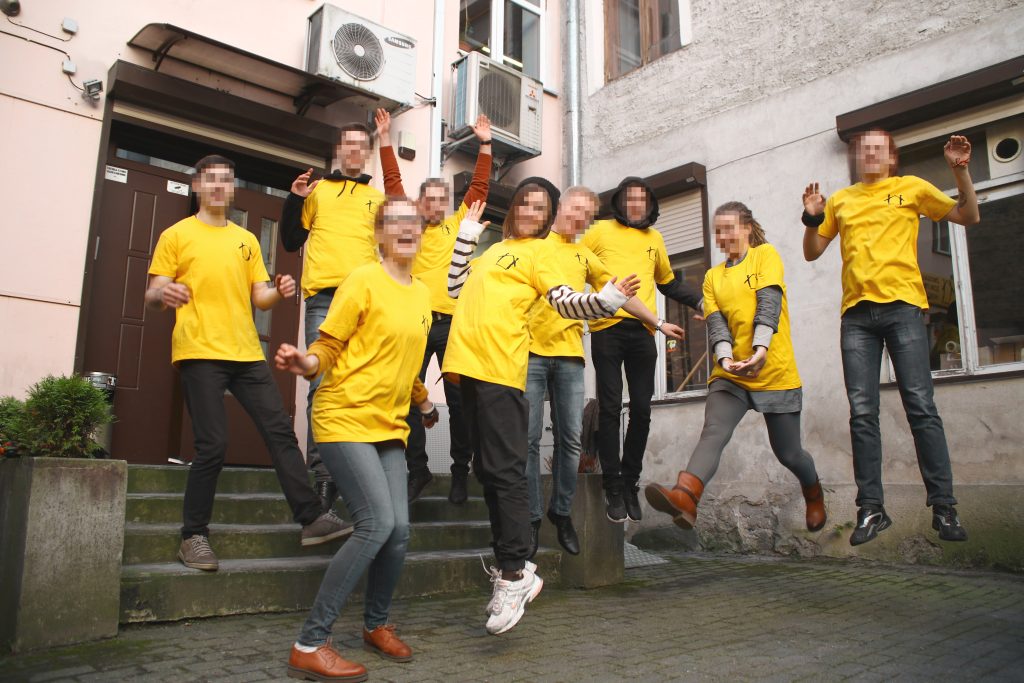
We need to understand their psychology and emotional state to better enable them to take action and engage more young activists in human rights advocacy.
HOW STUDENTS FOUGHT FOR THEIR RIGHTS AND GREW INTO A MAJOR FORCE OF THE REVOLUTIONARY MOVEMENT IN 2020
Students played an important role during the Belarusian presidential elections of 2020. They were extremely brave, bright and outspoken in the obscurity of university corridors.
This article is based on youths’ experiences and accounts. It examines how young people stood up against electoral fraud, and what initiatives originated around this group. But we would like to talk first about the pressure under which students and activists found themselves.
Authorities ratcheted up the level of intimidation of students, especially those who joined student associations. We saw waves of attacks at universities not only in the capital but also in regional centers. Various forms of punishment and intimidation were applied to critical students and professors too.
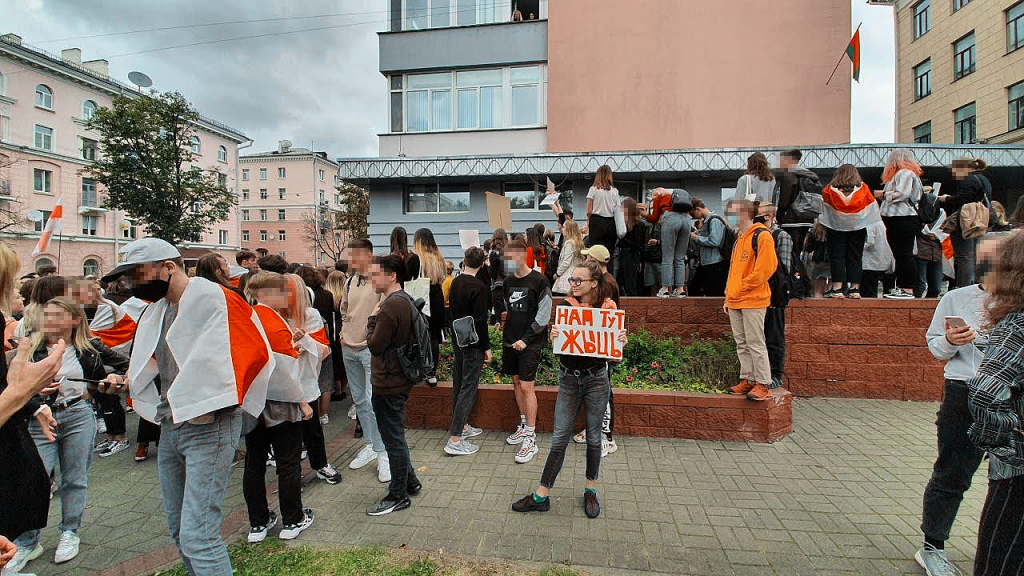
- During the unrest, officials or security officers were often present at or near university buildings. In one incident, a senior police official, a lieutenant colonel of the Main Directorate for Fighting Organized Crime and Corruption, arrested peacefully protesting female students at the Philology Faculty of Belarusian State University. Undercover agents attended lectures at Minsk State Linguistic University (MGLU). Plain clothes law enforcers were also seen at Belarusian National Technical University (BNTU). Police used force to arrest female students near university buildings. One such incident occurred on September 4, 2020 in front of MGLU.
- Authorities attempted to trigger a wave of online abuse directed at female activists by publishing their personal data on pro-government Telegram channels (e.g. “Incredible MGLU”).
- Disciplinary action: Reprimands have become a go-to method of silencing dissent at universities. In addition, 147 students were denied monthly allowances, supplementary payments and dormitory beds on political grounds, Honest University said. A total of 479 students reported politically motivated persecution.
- Politically-motivated expulsions. University administrations started to expel students en masse after Aliaksandr Lukashenka said that “universities should stay out of politics, and if a student thinks otherwise – he should be expelled”. For example, BNTU expelled 525 students in a day. In all, at least 277 students were expelled.
- Reprisals for association with opposition bodies. In September, a BSU lecturer was summoned to the Investigative Committee for questioning for her participation in the opposition’s Coordinating Council for Political Crisis Settlement.
- Violent detentions at peaceful protests. Students were detained at both student and national rallies as police used disproportionate force against peaceful demonstrators. In one incident, a police officer dragged a BNTU student by nostrils to a police van on September 1, 2020.
- Criminal prosecution for participation in protests. At least 70 students have been convicted of crimes on politically-motivated charges and sent to correctional institutions or sentenced to home confinement. Some of them have already served their sentences.
POST-ELECTION CRACKDOWN TAKES ITS TOLL ON ENVIRONMENTAL ACTIVISM

MARYNA DUBINA,
environmental activist, Ecodom
Is it possible to deal with environmental issues and do a revolution, while facing endless political repression, police searches and arrests amid the war in Ukraine? Can environmental issues wait until better times? Is it ethical to interact with authorities in Belarus right now? If it is not possible to deal with authorities, can environmental issues be resolved without them? Is it possible to separate environmental activism from politics in Belarus?
These and other questions have been raised and discussed by environmentalists and eco-NGOs in the last 2 years. After the 2020 uprising, it is hard to say if Belarus still has any non-political spheres whose actors have not been targeted by reprisals.
Environmental organizations continue adaptation and search for a new tactic to respond to challenges. Initiatives have changed considerably, while environmental issues have not lost their relevance, although they have been somewhat eclipsed by political developments.
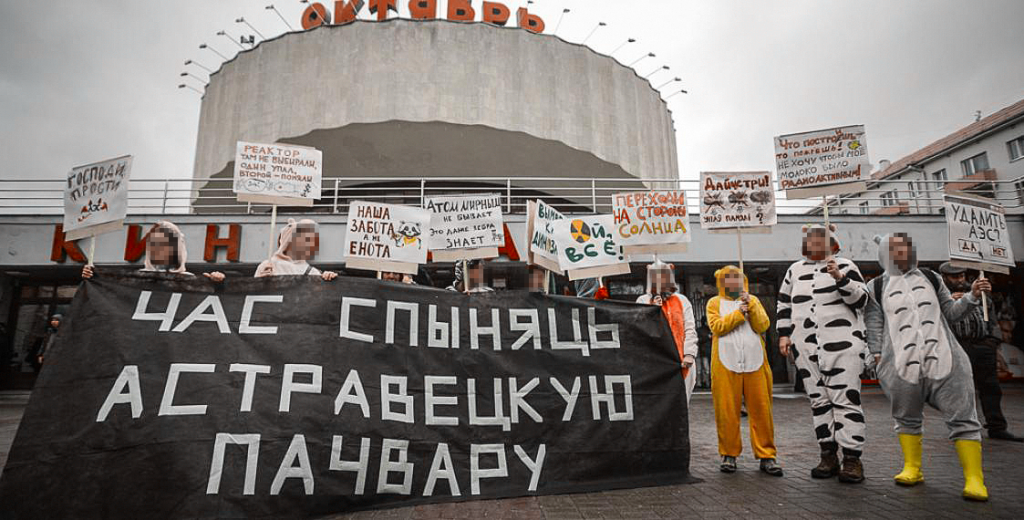
As the sociopolitical crisis persists in Belarus, environmental issues are likely to come to the fore again. On the one hand, Belarusians avoid any activity and interaction with authorities for fear of reprisals. On the other hand, organizations that could monitor and solve environmental issues have been closed, and independent media that could sound alarm and raise awareness have been labeled extremist. Green Portal remains the key source of environmental news that defines the agenda.
Some European and international initiatives have been replaced by Russian projects involving governmental agencies, pro-government associations and GONGOs.
The period after August 2020 has been a huge challenge for young Belarusians who have gained valuable experience, become professionals in their areas and already have a vision of a new Belarus.
They stick with their ideals, acting as part of not only Belarusian civil society, but also European one.
Belarusian National Youth Council “RADA” has become a common home for all Belarusian youth activists. A voluntary union of 37 youth associations and organizations, it was established to consolidate youth groups in Belarus. RADA represents, promotes and upholds common interests and freedoms of youth organizations and young people in Belarus.
